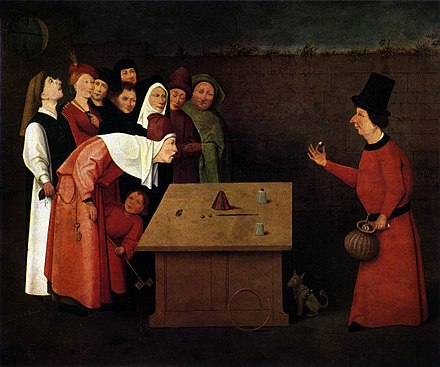After we’ve seen that the game did not spike enough interest on Steam platform, we’ve decided to cut some. Here it is: Wild West Pigeon on Play Market.
Pigeon drop scam targeting the elderly at malls involving found bag of cash with offer to share portion of money for good faith senior victim cash advance but money switched to paper. .by the following OED context: 1979 A Houston woman held on attempted theft charges claims to be part of a national ‘pigeon drop’ confidence ring.

A confidence trick is an attempt to defraud a person or group by gaining their confidence. A confidence artist is an individual working alone or in concert with others who exploits characteristics of the human psyche such as greed, both dishonesty and honesty, vanity, compassion, credulity, irresponsibility, naivety and the thought of trying to get something of value for nothing or for something far less valuable.
Contents |
Terminology
A confidence trick is also (non-exhaustively) known as a con game, con, scam, grift, hustle, bunko, swindle, flimflam, gaffle, or bamboozle. The intended victim(s) are known as marks. The perpetrator of a confidence trick is often referred to as a confidence man/woman, con man/woman, con artist or grifter. When accomplices are employed, they are known as shills.
In David Mamet's film House of Games, the main con artist gives a slightly different description of the 'confidence game.' He explains that, in a typical swindle, the con man gives the mark his own confidence, encouraging the mark to in turn trust him. The con artist thus poses as a trustworthy person seeking another trustworthy person.
History
The first known usage of the term 'confidence man' in English was in 1849. It was used by American press during the United States trial of William Thompson. Thompson chatted with strangers until he asked if they had the confidence to lend him their watches, whereupon he would walk off with the watch. He was captured when a victim recognized him on the street.[1]
Vulnerability to confidence tricks
Confidence tricks exploit typical human characteristics such as greed, dishonesty, vanity, honesty, compassion, credulity, irresponsibility, desperation and naïveté. The common factor is that the victim (mark) relies on the good faith of the con artist.
Just as there is no typical profile for swindlers, neither is there one for their victims. Virtually anyone can fall prey to fraudulent crimes. ... Certainly victims of high-yield investment frauds may possess a level of greed which exceeds their caution as well as a willingness to believe what they want to believe. However, not all fraud victims are greedy, risk-taking, self-deceptive individuals looking to make a quick dollar. Nor are all fraud victims naïve, uneducated or elderly.[2]
A greedy or dishonest mark may attempt to out-cheat the con artist, only to discover that he or she has been manipulated into losing from the very beginning.
Shills, also known as accomplices, help manipulate the mark into accepting the con man's plan. In a traditional confidence trick, the mark is led to believe that he will be able to win money or some other prize by doing some task. The accomplices may pretend to be strangers who have benefited from performing the task in the past.
Real-life con artists

Fictional con artists
- See Category:Fictional con artists
Popular culture

See also
- Franchise fraud
- List of criminal enterprises, gangs and syndicates
- List of Ponzi schemes
- Psychological manipulation
- Scad (scam ad)
References
- ^ Karen Halttunen, Confidence Men and Painted Women, p 6 ISBN 0-300-02835-0
- ^Crimes-of-persuasion.comFraud Victim Advice / Assistance for Consumer Scams and Investment Frauds
Further reading
- Ball, J. Bowyer; Whaley, Barton (1982). Cheating and Deception (reprint 1991). New Brunswick (USA), London (UK): Transaction Publishers. ISBN 0-88738-868-X. http://books.google.com/books?id=ojmwSoW8g7IC.
- Blundell, Nigel (1984) [1982]. The World's Greatest Crooks and Conmen and other mischievous malefactors. London: Octopus Books. ISBN 0-7064-2144-2.
- Dillon, Eamon (2008) [2008]. The Fraudsters: Sharks and Charlatans - How Con Artists Make Their Money. Merlin Publishing. ISBN 978-1-903582-82-4.
- Ford, Charles V. (1999) [1999]. Lies! Lies!! Lies!!!: The Psychology of Deceit. American Psychiatric Publishing, Inc.. ISBN 978-0-880489-97-3. http://books.google.com/books?id=_FSc5C2bFYUC.
- Henderson, Les (2000). Crimes of Persuasion: Schemes, scams, frauds. Coyote Ridge Publishing. ISBN 0-9687133-0-0. http://books.google.com/books?id=-aJ8d_oewg8C.
- Kaminski, Marek M. (2004). Games Prisoners Play. Princeton: Princeton University Press. ISBN 0-691-11721-7. http://books.google.com/books?id=YIGzIaNmokgC.
- Maurer, David W. (1999) [1940]. The Big Con: The Story of the Confidence Man and the Confidence Game (reprinted). New York: Bobbs Merrill / Anchor Books. ISBN 0-385-49538-2. http://books.google.com/books?id=xJUOAAAACAAJ.
- Maurer, David W. (1974). The American Confidence Man. Springfield: Charles C. Thomas, Publisher. ISBN 0-398-02974-1. http://books.google.com/books?id=W6twAAAACAAJ.
- Sutherland, Edwin Hardin (1937). The Professional Thief (reprint 1989). Chicago: University of Chicago Press. ISBN 978-0-226-78051-1. http://books.google.com/books?id=muZuPt327pwC.
External links
- 'Arrest of the Confidence Man'New York Herald, 1849
- Dateline NBC investigation 'To Catch a Con Man'
| ||||||||||||
| |||||||||||
| ||||||||||||||
| ||||||||||||||
Pigeon Drop Confidence Games
Wikimedia Foundation. 2010.
Pigeon Drop Confidence Game Amazon
Look at other dictionaries:
Pigeon Drop Confidence Game Crossword
confidence trick — confidence tricks N COUNT A confidence trick is a trick in which someone deceives you by telling you something that is not true, often to trick you out of money. [mainly BRIT] (in AM, usually use confidence game) … English dictionary
confidence trick — confidence .trick n a dishonest trick played on someone in order to get their money = ↑con >confidence trickster n … Dictionary of contemporary English
confidence trick — UK US noun [C] UK (US confidence game) ► CON(Cf. ↑con) … Financial and business terms
confidence trick — (N. Amer. also confidence game) ► NOUN ▪ an act of cheating someone by gaining their trust … English terms dictionary
confidence trick — index bunko Burton s Legal Thesaurus. William C. Burton. 2006 … Law dictionary
confidence trick — noun a swindle in which you cheat at gambling or persuade a person to buy worthless property • Syn: ↑bunco, ↑bunco game, ↑bunko, ↑bunko game, ↑con, ↑confidence game, ↑con game, ↑gyp, ↑hustle, ↑ … Useful english dictionary
confidence trick — UK / US noun [countable] Word forms confidence trick : singular confidence trick plural confidence tricks a trick in which you persuade someone to trust you and then get money from them … English dictionary
confidence trick — noun (C) formal a dishonest trick played on someone in order to get their money; con 2 (1) confidence trickster noun (C) … Longman dictionary of contemporary English
confidence trick — /ˈkɒnfədəns trɪk/ (say konfuhduhns trik) noun a swindle in which the victim s confidence is gained in order to induce them to part with money or property. Also, US, confidence game. –confidence trickster, noun … Australian English dictionary
confidence trick — (N. Amer. also confidence game) noun an act of cheating or tricking someone by persuading them to believe something that is not true. Derivatives confidence trickster noun … English new terms dictionary